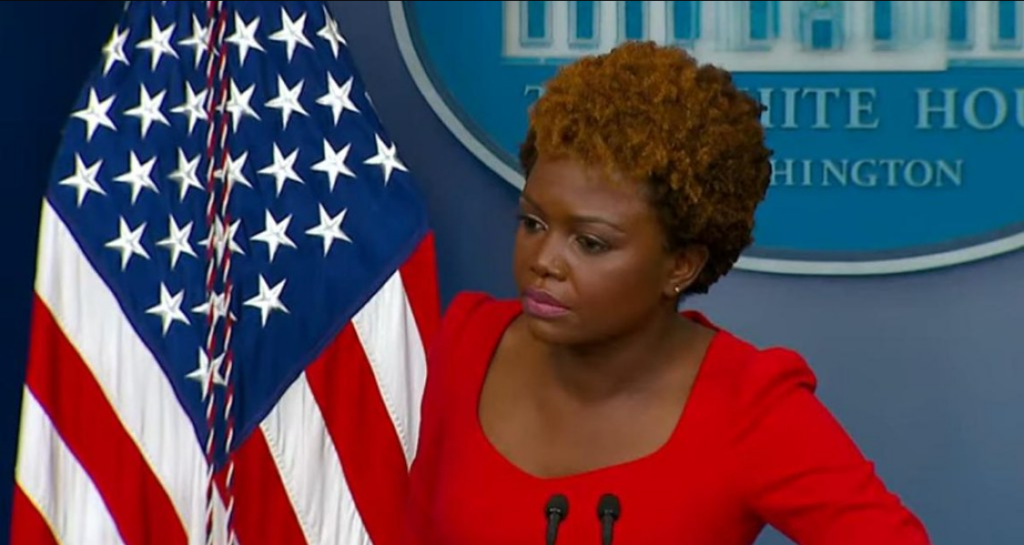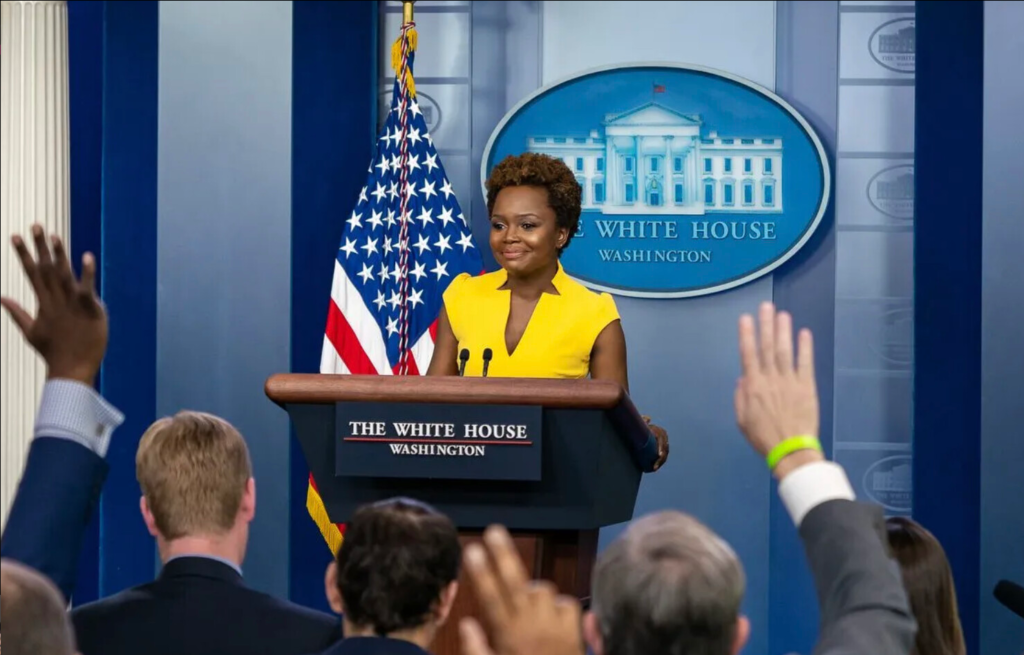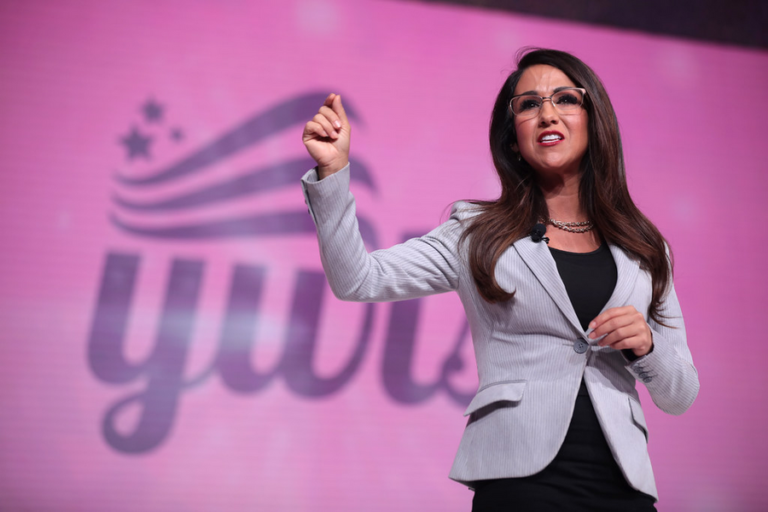Despite being warned by a federal watchdog agency that it violates the Hatch Act, the White House persists in using the term “MAGA” to describe Republican opposition.
On Wednesday, White House press secretary Karine Jean-Pierre strongly criticized the fiscal blueprint put forth by Republicans, referring to it as a “hardcore MAGA budget.”
In a memo issued on the same day, Andrew Bates, the deputy White House press secretary, labeled the Republicans’ primary economic objective as “MAGA tax welfare for the wealthiest Americans and large corporations.”
Furthermore, Bates criticized the budget proposal put forth by House Republicans in another memo on Thursday, describing it as an “extreme MAGA plan” that significantly undermines vital Medicare benefits that American families work hard to obtain.
Following a letter from the U.S. Office of Special Counsel on June 7, cautioning against the use of “MAGA Republicans” by Karine Jean-Pierre during press briefings before the 2022 midterm elections, each of these statements were made.
The Hatch Act, which prohibits federal employees from utilizing their positions to engage in political activities that could influence election outcomes, was cited as the basis for the violation.
It is in response to this advisory that the White House press secretary and deputy press secretary employed alternative terminology to express their criticism of the Republicans’ policies and budget proposals.

Last year, President Biden began employing the term “ultra MAGA Republicans” to portray Republicans as growing more radical and tied to former President Donald Trump and his MAGA movement.
Ana Galindo-Marrone, the head of the Hatch Act Unit of the Office of Special Counsel, stated that although Karine Jean-Pierre did not explicitly direct viewers to vote for or against Republican candidates, the timing, frequency, and substance of her references to “MAGA Republicans” indicated a clear intent to generate opposition towards Republicans.
Galindo-Marrone’s assessment emphasizes that the usage of this terminology was aimed at influencing public perception and potentially affecting the electoral outcomes.
The Office of Special Counsel decided not to take disciplinary action, but Ana Galindo-Marrone informed Karine Jean-Pierre that any future engagement in prohibited political activity would be viewed as a deliberate and intentional violation of the law.
Such a violation could lead to disciplinary measures pursued by the Office of Special Counsel. In response to the violation, Jean-Pierre highlighted the extensive use of “Make America Great Again” on the archived White House website during the Trump administration, with nearly 2,000 instances.
She also noted that congressional Republicans have routinely employed the term “MAGA” in their official policies for several years.

Karine Jean-Pierre explained that she had received approval to use the terminology in question at the time. She mentioned that White House attorneys will engage in a regular discussion with the Special Counsel’s office regarding the allegations concerning the Hatch Act.
This suggests that there will be a dialogue between the White House legal team and the Office of Special Counsel to address the concerns raised and to ensure compliance with the Hatch Act guidelines.
Protect the Public’s Trust, a conservative watchdog group, filed a Hatch Act complaint that led to the Special Counsel’s evaluation.
As a result, the organization recently lodged a fresh complaint, taking aim at the ongoing usage of “MAGA” by Karine Jean-Pierre and Andrew Bates. This indicates that the conservative watchdog group remains vigilant and persistent in challenging the perceived violations of the Hatch Act regarding the repeated utilization of the term “MAGA” by White House officials.
The complaint serves as a continuation of their efforts to hold accountable those who they believe are infringing upon the guidelines outlined in the Hatch Act.
According to Michael Chamberlain, the director of Protect the Public’s Trust, these statements seem to be a deliberate act of defiance towards the Office of Special Counsel (OSC) and a clear indication that the White House Press Office staff does not consider themselves bound by the rules.
Chamberlain, who previously served as an official in the Education Department during the Trump administration and worked on Trump’s 2016 campaign, believes that these actions demonstrate a disregard for compliance with the Hatch Act regulations.
His remarks highlight the organization’s perspective that the repeated use of “MAGA” terminology by White House personnel undermines the principles outlined in the Hatch Act.
In a written statement, Andrew Bates raised doubts about the credibility of the complainant by pointing out that the leader of the group had served in an administration that had a significant number of Hatch Act violations.
By highlighting the complainant’s prior involvement in an administration with a record of such violations, Bates sought to question the legitimacy and motivations of the complaint filed by Protect the Public’s Trust.
This response suggests a defensive stance, attempting to undermine the complainant’s credibility and divert attention from the allegations against the White House officials.
Andrew Bates further expressed disagreement with the Office of Special Counsel’s perspective. He emphasized the White House’s commitment to adhering to the Hatch Act but argued that the phrase in question had been used extensively by Republicans in elected positions to describe official policy proposals, agendas, and associated principles.
Bates asserted that the White House had used the term in a similar manner, drawing attention to the fact that the Office of Special Counsel had previously approved the term ‘MAGAnomics’ during the previous administration. This response attempts to defend the usage of the term “MAGA” by highlighting its prior acceptance and alignment with Republican terminology.
The Special Counsel chose not to provide a comment regarding the new complaint filed by Protect the Public’s Trust. Interestingly, it is noteworthy that Karine Jean-Pierre frequently invokes the Hatch Act as a justification for refraining from addressing reporters’ inquiries concerning former President Trump’s potential candidacy for the 2024 presidential election.
This observation highlights an ironic situation wherein Jean-Pierre, while citing the Hatch Act as a reason for non-engagement on Trump-related matters, is herself embroiled in a Hatch Act controversy due to her use of “MAGA” terminology. This juxtaposition underscores the complexities and contradictions surrounding the application and interpretation of the Hatch Act.

Reporters often pose questions about Trump, who has announced his candidacy for the 2024 presidential election. It is worth noting that Trump and his administration were known for multiple Hatch Act violations.
One notable instance was the use of the White House grounds for Trump’s 2020 Republican National Convention speech, which constituted a breach of the Hatch Act.
In November 2021, the Special Counsel’s office released a report stating that over a dozen high-ranking officials from the Trump administration had improperly exploited their official government powers, thereby violating the Hatch Act, with the intent to influence the outcome of the 2020 election.










+ There are no comments
Add yours